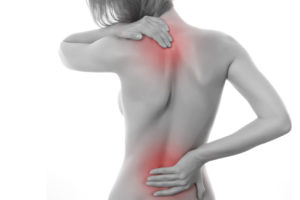The New Year is here, at the start of 2019 the days are already getting longer, we can look to the future again. Not uncommonly, after Christmas and New Year binges, we can look forward with the aim of improving our health. It is renowned that New Year’s resolutions fail. But why is it often so hard to make changes stick?
It is tempting to think we are responsible for all our decisions, for every nuance of our health. It is tempting to think the same of others. But why, in an era of universal education where almost everyone knows being overweight is bad for your health, smoking causes cancer and not moving regularly worsens health, is it that being overweight and not moving regularly are the norms rather than the exception?
Can over 50% of the UK population really just not be bothered to maintain a healthy weight? Can the majority of the population just be too lazy to move regularly? Clearly judging by the mass of diet blogs, books, advice articles and health gurus around there is a lot of interest in being healthier. But like New Year’s resolutions people can’t make the healthy changes stick.
Clearly there are significant social influences. No one can claim an individual has total freedom to decided entirely over their own health within society. It is easy to obtain food. Healthy food, such as vegetables and fruit, are more expensive than less healthy food and often don’t taste as good. We can perform our work from a chair and a computer all hours of the day which enables us to generate wealth and income without moving more than our fingers. Such behaviour is often expected or even required of us, in school, university and many jobs. We can also transport ourselves via bus, car, plane, Segway, electronic scooter etc. without expelling effort. Society is built on many competing and contributing ideas and systems, many of which diminish the importance of personal health. It is easy to be disheartened by looking at the wide-ranging negative influences. Especially as, unfortunately, there isn’t too much one can do about these developments.
But at the individual level there are also factors that make changing more than simply a matter of will power and responsibility. From a neurocognitive perspective it is easier for the brain and nervous system to maintain homeostasis by learning and comparing to past experience than it is for a neural system to learn what ‘good health is’. Think of the energy demand and complexity that would be required for the neural system to check, evaluate and alter behaviour based on the levels of every aspect of dietary health such as each individual vitamin, mineral and essential amino acid. The human neural system is phenomenally well developed and complex but it is more efficient to check whether the body is in a ‘normal state’ for the most critical components, such as if it has enough energy or has had enough sleep. Safety, for the neural system, is doing what it has always done and doing what everyone else around it is doing. A kind of it has worked so far, so it must continue to work kind to approach. This makes change tough.
If we take being overweight. The neural system can know what is ‘normal’, i.e. which state it has survived in so far. So, if it has learnt that for a given individual ‘normal’ weight is actually 50% too much, according to external measures such as BMI, then it will fight to keep that individual ‘normal’. Do whatever diet you like, start dieting and losing weight and the neural system reacts to motivate us back to ‘normal’. It can increase hunger in response. The neural system gets used to eating a certain amount or at certain times. Change this, for example by eating less, and it thinks something is wrong. It may stimulate motivation to take action. The same can be said of moving regularly. The body is used to a certain degree of movement and physical loading. Change this and the neural system will want to know whether what we are doing is in fact safe. It doesn’t know yet if it hasn’t done it before! Our neural system is more likely to put the brakes on in the first instance before it gives the muscles, lungs, heart etc. permission to work much harder. This is a key factor in rehabilitation and in athletic training. Progressive increases in demand on the body will be tolerated and the body will, given time, make adaptations more permanent. If we make a sudden change the neural system might engage protection. Might shout at us to Eat more! Or Move less! in a bid to maintain homeostasis. Even very strong will power is likely to struggle in the face of a body that is repeatedly encouraging one to eat. Anyone starting a training program they are not ready for will likely experience marked discomfort and after effects including pain which can make them think twice.
So is this all doom and gloom for the New Year? Far from it. Whilst I admit this is an appreciable oversimplification of complex issues, thinking in this way can liberate us from many uncertainties and enable us to motivate ourselves from long term, steady adaptation that may be more likely to become permanent.
The neural system isn’t really ready for a New Year’s Revolution, but it is likely to tolerate a New Year’s Evolution.




